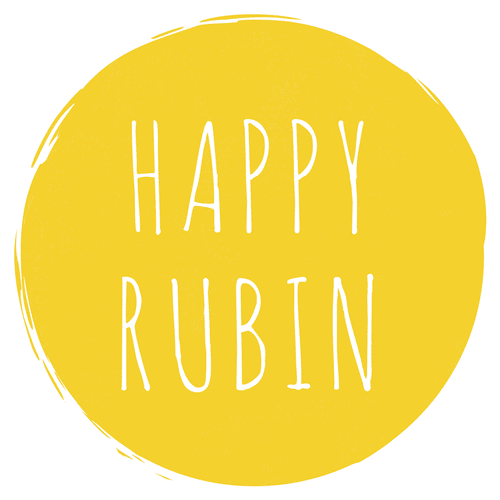![How To Deal With Sensory Overload [9 Tips For Overstimulation]](https://happyrubin.com/wp-content/uploads/2019/12/ik-ben-overprikkeld-150x150.jpg)
NLP Predicates – The best examples [Lists with words] [Ready to use]
![NLP Predicates – The best examples [Lists with words] [Ready to use]](https://happyrubin.com/wp-content/uploads/2016/08/pexels-photo-27802.jpg)
NLP predicates are a simple form of imagery in your language that can be used for a great number of different purposes. Here you will find a complete list of predicates to recognize and use. A complete overview with examples of predicates is given in the following paragraphs.
Contents of this page:
What are predicates?
Predicates – also referred to as process words within NLP – are ‘sense-specific’ words in your speech. These words reveal which preferred representation system a person is in. This can be: Visual (V), Auditory (A), Kinesthetic (K), Olfactoir (O) and Gustatoir (G). If you want to remember this list, think of VAKOG.
For each element in the list of VAKOG, specific predicates can be recognized in the speech of other people or applied in your own speech.
What can you do with predicates?
- Rapport making is a powerful predicates tool: speak or write in the other’s preferred system . Listen to the types of words people use to find out what preference they are in a particular context. Have a chat with someone and listen to the types of words that are being used. For example, ask how and why questions and listen carefully to recognize someone’s preferred system. Questions like: “Tell me more about it.” “How?” “What do you like about it?” Next, you can use someone’s preferred system, for example the kinesthetic (feeling), in your conversation to ‘make rapport’. Examples:
- I heard him say: This can be done, for example, by tackling my limiting beliefs .
How I reacted to him: then you can tackle that firmly. - I heard him say: You can then explain your vision .
How I reacted to him: I see what you mean. - I heard him say: You have to focus well .
How I reacted to him: I see it. - I heard him say: this way you can communicate better .
How I responded to him: I hear what you mean. - I heard him say: if you feel a lot of pressure …
How I reacted to him: then you can free yourself from that grip . - I heard him say: I am exhausted .
How I reacted to him: I understand that. - I heard him say: I first look at what the assignment is that I received from the company.
How I responded to him: so you first paint a picture of what the company needs. - I heard him say: if it doesn’t hit on well, they just ask me for a new improved version.
How I responded to him: I feel what you mean. - And another way to break the rapport by using the wrong predicate …
I heard him say: writing for websites actually goes hand in hand with SEO, but I myself have no understanding of that and I do not pay attention to it.
How I responded to him: you are not yet fully clear on how to apply SEO to your work, and that is not part of your job description.
- I heard him say: This can be done, for example, by tackling my limiting beliefs .
- Utilization of someone’s words from the ‘VAKOG’ list to guide stuck thinking:
“I can’t imagine being able to do that.” ” What if you can or could imagine ?”
“I’ve been tuned out .” “Can you tune back into it ?”
“This weighs heavily on me.” Then assist that person to feel lighter .
- With visualizations , metaphors and stories you can use predicates to make it more vivid. In addition, put adjectives before the V, A, K, O or G words for a stronger effect. For example, you can see a blue ocean, or you can see a beautiful blue ocean.
- Another application is simply to make your speech more spectacular, instead of boring company language, otherwise your employees will fall asleep. Martin Luther King used all the senses. “In life are so many opportunities that you can just taste , you have to seize .”
- Noticing emotions in the people around you. “I notice that you {observation}. It upsets me a bit to see it like that. What’s wrong?”
Examples of predicates, to recognize and use in your speech

Visual predicates
- See a bright spot
- What a dark subject!
- let’s shine a light on this topic.
- In the light of…
- High regard
- Clear
- Feast for the eye
- What kind of… .. do you see yourself doing?
- Can you imagine that for yourself?
- Can you imagine that?
- Insight
- Sight
- See
- See through
- Considered
- Show
- Tunnel vision
- Vision
- Perspective
- Focus
- To show
- Charming
- Colorful
- Mirage
- To reveal
- To show up
- Shiny
- Splendid
- Brilliant
- Sparkling
- To illustrate
- Pictures
- Sharp
- Color
- Vague
- Clear / crystal clear
- Have a clear picture
- Clarify / clarify
- It’s not clear to me yet
- I’ve had a blackout
- A glow
- To paint a picture
- In a glimpse
- Eye in eye
- Considered
- See in a larger context
- Mental image
- Mind eye
- Naked eye
- Imagination (speaking to someone’s imagination)
- Reflect
- Photographic memory
- Ensure
- Short-sighted
- Visible
- Demonstrate
- Quaint
- Your true colors
- That looks good
- It looks like…
- A mental image, a mental scene, in your mind’s eye
- With an eagle eye
- Keep an eye on
- At first sight
- Having an eye for something
- That is typical of …
- Let me have a look
- Look, I mean
- Have a crush on
- Against the background of
- It’s not that Black and White
- show me what you mean. I see what you mean.
- The problem is staring in my face
- Take a closer look
- Staring ahead
- Nice to see
- have a look here
- a glimpse of …
- this is a new take on …
- If I were to show you an attractive proposal, would you like to see if it is what you have in mind?
- I see that …
- Wolf in sheep’s clothes
- What an oasis of peace it is in here
- Through the eye of the needle
- Paint a rosy picture
- The spitting image
- Do you see a way to do that?
- Of course viewed through {company name} glasses
- Drop your eye on
- Photographic memory
Auditory predicates
- Ask
- To talk
- Outspoken
- Call
- Shout
- Say
- You say that
- I hear what you say
- Being heard
- To hear
- Loud and clear)
- Screaming
- Harmony
- Melody
- To sing
- Sound
- Who sets the tone
- Pick a different tone
- That sounds like …
- Tuning / tuning
- it clicks
- the rumble
- That rhymes with …
- Listen
- Audience Member
- Reportedly…
- Just say …
- Sounds good
- Unheard of!
- that makes me ring a bell
- Talking to deaf ears
- How does that sound to your ears?
- Like music to your ears
- Having ears for something
- Pick a different tone
- Let us hear from you
- Does it mean anything to you?
- Let’s hear something
- So to speak
- You sell nonsense
- You’re a chatterbox
- I’m all ears
- Call out loudly
- Separate elements work together in harmony: they are the instruments for the verbal orchestra
Kinesthetic predicates
- I feel that …
- Cold / warm
- Heat (heated discussion)
- Hold that idea
- Sympathetic
- Heart warming
- Heartbreaking
- Hot-headed
- To feel
- Shivering / trembling / trembling / shaking
- Slowly…
- Wet
- Solid
- Solid
- Weight
- Balanced
- Light-footed
- To hold
- Catchy
- Convert to
- Somebody move around
- I have the feeling that
- Support
- tangible
- Grip (get on)
- Slips through your fingers
- Touching
- Find reference points
- Connect with
- Just throw it out
- Specific
- Scrape
- Solid
- Sticks
- I feel what you say
- Feels good
- Crushing
- Continuous, broken down
- Defeated / quenched
- Comes down to
- Tackle
- Hook up
- Get in touch with
- Grab
- Hand in hand
- Persevere
- Has slipped my mind
- Stand your ground
- Emphasis on
- Inverted world
- Balanced
- To insist
- Heart warming
- Exert pressure
- Premonition
- Keep turning
- Fall
- Impression
- Hit
- Affected
- Moved
- Waited
- Relax
- Sensitive
- Razor-sharp
- Inimitable
- Stand out
- Overwhelmed
- Numb
- Hard
- Soft
- let’s keep in touch
- Which creates a familiar feeling for you?
- Run into something
- Walk on tiptoe
- When I make you a concrete proposal, you can experience for yourself whether it feels good.
- Have something to hold on to
- Laying a foundation for
- Give shape to
- Have a handle
- Pulling strings
- Going smoothly
- Feel comfortable in your own skin
- The pressure is off
- To be under pressure
- I couldn’t put my finger on the spot
- Leave it to the left
- Tell me something interesting and I’ll hang on your every word (‘Yes, I still feel it!’)
- Making the decision
- Being in control
- Getting married
- A stab in the back
- With the wind at your back
- Keep our back straight.
- I have a few more doors open here (because of the warm weather), do you want to kick them in for me too?
- Always keep the door open.
- A verbal stoning
- It feels like a warm blanket (of …)
- I am enthusiastic about that
- Swimming without straps
- It disappears like ice in a hot oven.
- Work like an elephant in a china shop
- Not in each other’s way
- I felt I had to walk on eggs.
- Hitting nails with heads
- Do you feel called to …
- Feeling for something
Olfactory and gustatory predicates
- Bitter
- Smelly
- Fragrant
- To my taste
- Sweet
- Under your nose
- To my taste
- You smell danger
- Gourmet
- Season with humor
- A touch of humor
- Fragrances with
- Stink somewhere
- Tasteful
‘Predicate-less’ or auditory-digital predicates
- I am aware that …
- I wonder…
- I evaluate …
- I like to go to the gym.
- The determination of the possibilities of the coordination of systems is such that the relationships are correct.
- Organizing management performance can generate enthusiasm and self-confidence, which can lead to integration of actionable data.
In Anthony Robbins’ book there is a story about three houses …
The book ‘Your Unprecedented Abilities’ contains a story in which three houses are described. Read that story and notice what it does to you. Read the story first without knowledge of predicates and read it again after you know what predicates are: this time with a different view. Which predicates do you recognize?
Exercise – Discovering predicates and then stretching
Variation 1: Have someone tell you something, for example about his holiday or something interesting that he recently experienced. What can you discover about his predicates?
Variation 2: Now let the other tell you the same thing, but then in the predicates of the representation systems that have not or hardly been used. Now it is also interactive. So ask questions and paraphrase so that you lead the other to other representation systems. Bonus to anticipate the following variation: during this conversation also think of ways in which you can match the representation system that the other person is using at a certain moment by also talking ‘in that representation system’.
Variation 3: Now we will actually make rapport using predicates. Use the accompanying predicates exercise in the article about rapport.
Exercise – Train your predicate vocabulary with a story
Create a story by taking turns coming up with two sentences. Each sentence contains words from a category from the list ‘VAKOG.’ Visual, Auditory, Kinesthetic, Olfactory and Gustatory.
- A starts the story with a sentence.
- B notes which VAKOG category has been used in this sense. Think of a new sentence that contains words from the same category.
- B may now add another sentence to the story. For this B uses a different category from the list of VAKOG.
- The next practice partner repeats steps 2 and 3. Continue in this way until the story is finished.
Optionally, you can do two rounds with a simpler level first:
- you make a round with only one representation system.
- You make a round with visual predicates, then with auditory predicates and finally with kinesthetic predicates.
Exercise – Noticing specific words in practice
Listen to a radio clip and note the sense-specific words and phrases. So predicates. This is an exercise that is given as homework in every NLP Practitioner Training .

![5 Best Self Care Tips For College Students [#1 Advice]](https://happyrubin.com/wp-content/uploads/2021/09/the-best-self-care-tips-for-college-students-440x264.jpg)
![How To Stick To New Year’s Resolutions: 9 Tips [Smart & Sure Ways]](https://happyrubin.com/wp-content/uploads/2019/12/tips-voor-goede-voornemens-440x264.jpg)
![How To Stop Being So Hard On Yourself [9 Great Tips]](https://happyrubin.com/wp-content/uploads/2019/12/we-moeten-zoveel-van-onszelf-en-anderen-150x150.jpg)

![19 Best Ice Breaker & Get-To-Know-Eachother Games [Fun & Simple]](https://happyrubin.com/wp-content/uploads/2018/02/leukste-ijsbrekers.jpeg)
![Becoming More Social: 41 Tips [Improving Social Skills] [List]](https://happyrubin.com/wp-content/uploads/2018/06/sociale-vaardigheden1.jpeg)
![How to start a conversation with anyone: 15 tips [Making contact]](https://happyrubin.com/wp-content/uploads/2017/08/gesprekstechnieken1.jpeg)
![372 Friend Tag Q&A Questions [Best Friend Quiz]](https://happyrubin.com/wp-content/uploads/2019/05/best-friend-tag-vragen-voorbeelden.jpg)



![Clingy & controlling behavior of partner/date [Extreme examples]](https://happyrubin.com/wp-content/uploads/2020/06/claimerig-gedrag-van-partner-eigenschappen-en-voorbeelden-150x150.jpg)

![How to recognize if a man is in love [Signals & his body language]](https://happyrubin.com/wp-content/uploads/2020/05/verliefd-gedrag-van-mannen-herkennen-150x150.jpg)


![Free will and religion / theology [Verses & Quotes on free will]](https://happyrubin.com/wp-content/uploads/2020/10/religion-on-free-will-quotes-1050x640-1-150x150.jpg)

![Dealing With Setbacks & Hardship [Lessons & Examples]](https://happyrubin.com/wp-content/uploads/2018/11/omgaan-met-tegenslag-tips-hoe-dan.jpeg)
![NLP Agreement Frame: Use these exact sentences [Examples]](https://happyrubin.com/wp-content/uploads/2020/10/agreement-frame-nlp-1125x640-1-440x264.jpeg)
![122 Best Comebacks In Any Situation [Best Examples]](https://happyrubin.com/wp-content/uploads/2020/06/beste-comebacks-technieken-tips-440x264.jpg)
![Using Hypnosis to Stop Smoking [HowTo]](https://happyrubin.com/wp-content/uploads/2020/05/stoppen-met-roken-door-hypnose-150x150.jpg)
![Presuppositions language pattern: meaning & examples [NLP]](https://happyrubin.com/wp-content/uploads/2020/04/wat-zijn-vooronderstellingen-150x150.jpg)
![Peripheral Vision: Meaning & Exercise [Essential Skill]](https://happyrubin.com/wp-content/uploads/2020/04/perifeer-zicht-trainen-tips-150x150.jpg)

![How To Start A Coaching Business [21 Smart Tips]](https://happyrubin.com/wp-content/uploads/2018/11/coachingpraktijk-starten-tips.jpeg)
![How to make dreams come true? [33 tips to realize dreams 100%]](https://happyrubin.com/wp-content/uploads/2018/05/dromen-mijlpalen.jpeg)
![How To Become Rich? 27 Millionaire Tips [Guaranteed To Work]](https://happyrubin.com/wp-content/uploads/2018/01/hoe-kan-ik-rijk-worden.jpeg)
![77 Best Online Marketing Tools [Recommendations] [Also Free]](https://happyrubin.com/wp-content/uploads/2018/08/beste-onlne-marketing-tools-tips.jpeg)
![Complete List Of Virtues & Qualities [Including Explanation]](https://happyrubin.com/wp-content/uploads/2018/12/kernkwaliteiten-uitleg.jpeg)
![Being Attentive: How Do You Do That? [Meaning & 9 Tips]](https://happyrubin.com/wp-content/uploads/2019/05/attent-zijn.jpg)
![Being Conscientious: Meaning Of This Virtue [Explained]](https://happyrubin.com/wp-content/uploads/2018/07/Consciëntieus-persoon.jpg)


![Best Books About Burn-Out [Top 10] [Update 2025]](https://happyrubin.com/wp-content/uploads/2020/06/beste-boeken-over-burnout-lijst-440x264.jpg)
![Best Self-love Books [Top 10] [Update 2025]](https://happyrubin.com/wp-content/uploads/2020/04/beste-boeken-over-zelfliefde-aanraders-440x264.jpg)
![Life changing books: 10 books that change your life [2025 Update]](https://happyrubin.com/wp-content/uploads/2020/03/levensveranderende-boeken-tips-150x150.jpg)
![Top 10 Best Books: Recommendations Per Genre [2025 Update]](https://happyrubin.com/wp-content/uploads/2019/12/best-books-per-genre-150x150.png)
![Best Books On procrastination: Must Reads [List] [2025 Update]](https://happyrubin.com/wp-content/uploads/2019/11/beste-boeken-over-uitstelgedrag-tips-150x150.jpg)
![Joe Dispenza: Events To Attend [2025 & 2026] [All Info]](https://happyrubin.com/wp-content/uploads/2020/02/joe-dispenxa-events-440x264.png)
![Best Online Study Options [Online Education Top List]](https://happyrubin.com/wp-content/uploads/2019/03/best-home-study-options-440x264.png)
![Teachable Review & Experiences 2025 [Bad Online Training Tool?]](https://happyrubin.com/wp-content/uploads/2020/02/Teachable-review-ervaringen-150x150.png)
![Audible Review, Experiences & Special Discount [Scam?]](https://happyrubin.com/wp-content/uploads/2020/01/audible-review-ervaringen-150x150.png)
![Guest Posts Wanted [Free & Always Directly Accepted]](https://happyrubin.com/wp-content/uploads/2019/05/gastbloggen-regels.jpg)

Dear Rubin,
Kudos to you on these wonderfully written posts. Stay Happy Stay Blessed and may you spread all the Happiness that you can desire.
Can I love you really helpful
beautifully explained thanks a lot